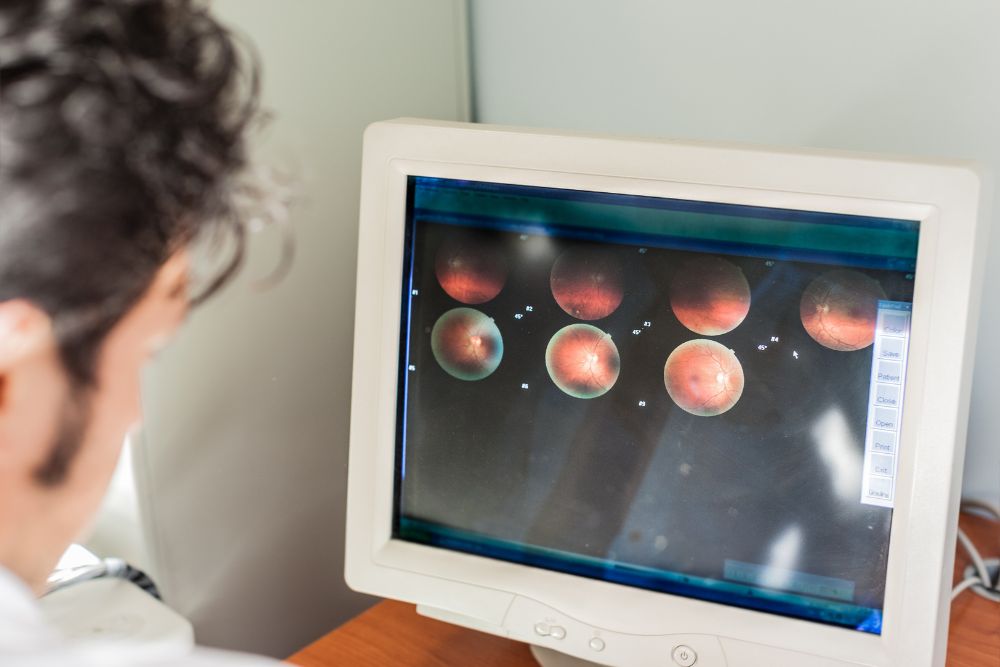The Role of Retinal Imaging in Diagnosing Eye Disease

Originally published by California Retina Consultants
Many retinal conditions develop silently, showing no obvious symptoms in their early stages. That’s why retina specialists rely on advanced retinal imaging to get a closer look at the eye. This powerful technology helps detect conditions like diabetic retinopathy and age-related macular degeneration (AMD) — often before patients notice any changes in their vision.
Types of Retinal Diagnostic Testing
Retinal imaging is frequently used during eye exams. These diagnostic tools enable retina specialists to closely examine the retina and identify any potential issues. Common types of retinal imaging tests include:
- Optical Coherence Tomography (OCT): This non-invasive imaging technique provides high-resolution, cross-sectional retinal images. It's effective in detecting and treating various macular diseases, such as macular holes, macular edema, AMD, and diabetic retinopathy.
- Fluorescein Angiography and Indocyanine Green (ICG) Angiography: During these tests, a small amount of fluorescent colored dye is injected into a vein in the arm. The dye travels to the eye's blood vessels, and special cameras capture images that reveal any retinal abnormalities. Unlike the fluorescein test, ICG dye illuminates when exposed to infrared light. This allows the retina specialist to view the retina's blood vessels, enabling them to evaluate macular issues and guide laser treatment.
- Fundus photography: This is a simple, noninvasive medical test where the retina specialist takes a picture of the fundus, the back wall of the eye. Fundus photography can help detect diabetic retinopathy, retinal injuries, AMD, and other conditions and issues.
The Importance of Regular Retinal Imaging
Many retinal conditions show few noticeable symptoms in the early stages. When patients believe their vision is fine, scheduling a comprehensive eye exam with retinal imaging often falls to the bottom of their priority list. However, by the time noticeable symptoms of these conditions appear, irreparable damage may have already occurred. Retinal imaging allows specialists to detect eye conditions before symptoms appear.
Early detection of eye conditions such as diabetic retinopathy and AMD can lead to prompt intervention and improved vision outcomes. Therefore, even if you think your vision is fine, it’s crucial to keep up with regular eye exams, especially if you’re at risk for specific eye conditions.
Schedule an Appointment With a Retina Specialist
Retinal imaging plays an important role in diagnosing and treating a wide range of retinal conditions. The sooner a condition is diagnosed, the more effective treatment will be. If you’d like to schedule an appointment with a retina specialist, contact California Retina Consultants today. We proudly serve patients throughout Central California, including Bakersfield, San Luis Obispo, Santa Barbara, and Valencia.